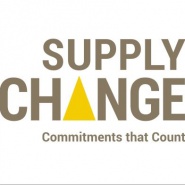New Site Tracks Corporate Action on Deforestation
In the past year, there has been a serious surge in big corporations pledging to deforestation-free commodities. To track companies’ movement on these pledges, Ecosystem Marketplace in collaboration with CDP and WWF is launching a new platform called Supply Change that tracks private sector action against commitments. This new interactive tool launched today.

25 March 2015 | The earth loses more than 6 million hectares of tropical rainforest – an area the size of Sri Lanka – every year, and two-thirds of it goes to meet demand for palm oil, soybeans, beef, and wood products, according to environmental NGO Forest Trends. At the same time, new Forest Trends research finds that companies worth nearly US$4 trillion have promised to reverse their role in degrading the world’s critical ecosystems. At least one third of these new pledges were made in 2014, nearly doubling 2013’s announcements.
These private sector actions are encouraging, but how realistic are the promises? How many of these promises are being kept? What challenges are businesses encountering?
To answer that, Forest Trends’ new platform Supply-Change.org lets users track the actions that companies are reporting against the promises they’ve made – in near – real time. Initial findings are summarized in “Supply Change: Corporations, Commodities, and Commitments that Count”, an easy-to-read, 32-page report based on the project’s current inventory of over 300 unique commitments – about one-third of which are targeted for achievement this year – from almost as many companies.
Mining Supply-Change.Org’s growing dataset, the report finds that well over half of forest-risk commodity commitments are tracked from companies in the food and beverage industry. The data also shows that corporate leadership has a multiplier effect: one commitment from a major retailer (think Walmart or Marks and Spencer) spurs another three commitments from their suppliers upstream.
The project, launched by the Forest Trends initiative Ecosystem Marketplace in collaboration with the World Wildlife Fund (WWF) and CDP (formerly the Carbon Disclosure Project), combines Forest Trends’ environmental markets expertise with WWF’s experience in supply-chain sustainability and CDP’s global collection of corporate environmental data.
“Transparency through public disclosure is a valuable tool for the world to gauge the corporate community’s progress in eradicating deforestation from key agricultural inputs,” says Michael Jenkins, Forest Trends Founding President and CEO. “These new relationships that underlie Supply Change harness the strength of our complementary skills to provide investors and other decision-makers with free access to information that will accelerate the transition to a zero deforestation economy.”
“We are seeing increasing awareness of the impact on businesses of deforestation risk and recently a growing trend for commitments to combat this. We are delighted that this new initiative further underlines the need for consistent corporate disclosure to CDP on the impacts of deforestation,” says CDP’s chief executive officer Paul Simpson.
“We believe that consumers should only have sustainable choices. To accomplish this, we need to completely rethink the way products are made, from the bottom up,” says Jason Clay, senior vice president of markets at WWF. “Corporate supply chain commitments send an unmistakable signal: ‘If you want to work with our company, the environment must be top-of-mind.’ Large corporations have the greatest leverage to shift whole industries, which is why supply chain commitments are so critical to our evolution to a market place full of sustainable choices.”
The Supply Change web platform (www.supply-change.org), including pilot company profiles and an initial findings report –Supply Change: Corporations, Commodities, and Commitments that Count – will be publicly launched on March 25, 2015.
Supply Change is powered by CDP and WWF data and insights; and financially supported by the Climate and Land Use Alliance (CLUA), Earth Innovation Institute, Global Environment Facility, JPMorgan Chase & Co., the Norwegian Agency for Development Cooperation, and the World Bank’s Program on Forests.
Additional resources
Please see our Reprint Guidelines for details on republishing our articles.

